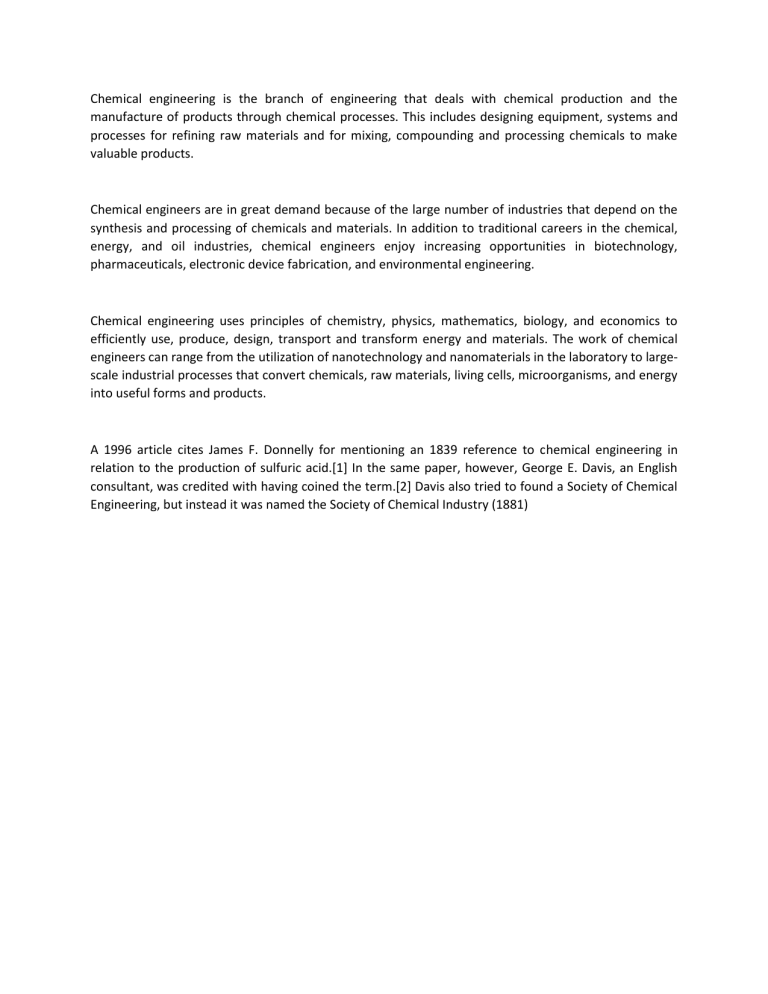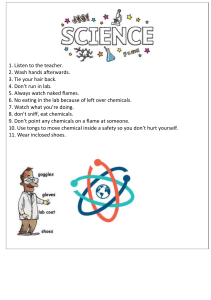
Chemical engineering is the branch of engineering that deals with chemical production and the manufacture of products through chemical processes. This includes designing equipment, systems and processes for refining raw materials and for mixing, compounding and processing chemicals to make valuable products. Chemical engineers are in great demand because of the large number of industries that depend on the synthesis and processing of chemicals and materials. In addition to traditional careers in the chemical, energy, and oil industries, chemical engineers enjoy increasing opportunities in biotechnology, pharmaceuticals, electronic device fabrication, and environmental engineering. Chemical engineering uses principles of chemistry, physics, mathematics, biology, and economics to efficiently use, produce, design, transport and transform energy and materials. The work of chemical engineers can range from the utilization of nanotechnology and nanomaterials in the laboratory to largescale industrial processes that convert chemicals, raw materials, living cells, microorganisms, and energy into useful forms and products. A 1996 article cites James F. Donnelly for mentioning an 1839 reference to chemical engineering in relation to the production of sulfuric acid.[1] In the same paper, however, George E. Davis, an English consultant, was credited with having coined the term.[2] Davis also tried to found a Society of Chemical Engineering, but instead it was named the Society of Chemical Industry (1881)
![Question 1 [ ] 1- What is the main goal for software engineering](http://s2.studylib.net/store/data/010210498_1-4a6ecbb9be365dadeadd769b25d4af75-300x300.png)



